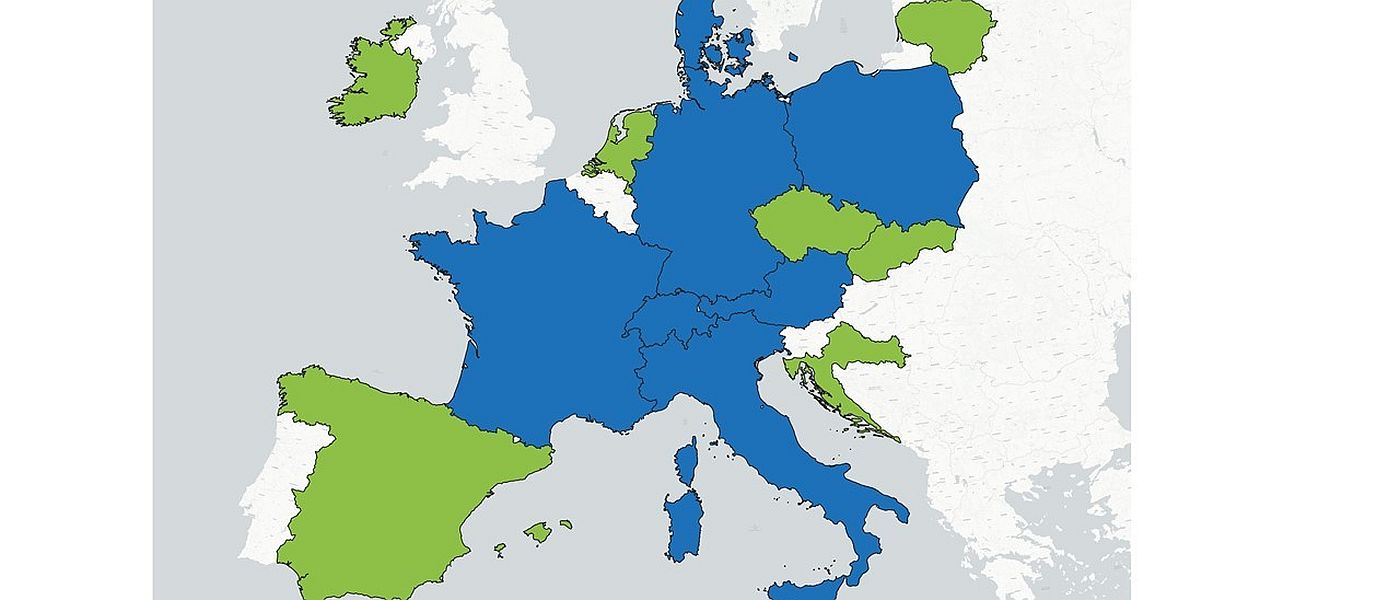The elaborated survey addresses relevant aspects impacting renewable energy sources in district heating and cooling systems (RES DHC) at EU level. Seven additional countries, outside of the project consortium, are identified as having high potential for RES DHC. District heating currently supplies heat to 60 million European citizens, covering around 11 % of the final energy for heating and cooling of buildings.
The heating and cooling sector represents half of the energy consumption of the EU, 75 % of which is supplied by fossil fuels. Buildings make up the largest share of total final energy consumption – accounting for 40 %. Renewable shares in the heating sector vary between countries from around 6 % (Ireland and Netherlands) to 65 % in Sweden. On average, renewable energy accounts for 21 % of the total energy used for heating and cooling in the EU.
DHC fueled by solar thermal, geothermal, bioenergy, and ambient and waste heat recovery can be the backbone of the future decentralized energy system, and represents the most effective and economically viable option to reduce the heating and cooling sector’s dependence on fossil fuels and cut down CO2 emissions. Denmark, Sweden, Finland, Lithuania, Estonia, and Latvia have the highest market shares of district heating. While this heating solution is most prevalent in cold winter countries, it can be deployed across the Europe.
When considered at EU level, there is a wide variety of stakeholders involved in the development of the RES-DHC market. The EU is a world leader in renewable heating and cooling technologies, and while economic and political developments at European level have an impact on the DHC market, heat generation, supply and consumption are characterised by their local nature. 140 million European citizens live in cities with at least one district heating system. Municipalities and city stakeholders have a key role to play in developing RES DHC. Strong involvement of local authorities supports the implementation of projects; and cities are well placed to design low-carbon pathways including district energy strategies that consider societal, environmental and economic aspects.
With its strategy on H&C, the European Commission strongly emphasised the role of H&C in the decarbonisation process. However, actions taken today can have a significant impact on future efforts due to technological lock-in. DHC should be promoted as a driver for the deployment of sustainable heating and cooling technologies and the decarbonisation of heat supply, especially in urban environments. By capturing waste heat, linking up with other parts of the energy system and integrating thermal energy storage, heat networks offer a source of valuable flexibility to the European energy system.
New legislation and business models are needed to promote RES DHC. DHC and renewable energy projects can be funded in many different ways, using both R&D funding and private financing. Each project is different, so there is no ready-set solution, but there are European programmes and investment funds, as well as national funding instruments, specialized in getting RES DHC projects off the ground.
Several countries outside the project consortium have been identified as having high potential for RES DHC. Croatia, Ireland, Netherlands, Spain have traditionally low shares of DHC, but have large potential to deploy modern, renewables-based networks with low operating temperatures. Czech Republic and Slovakia have high amounts of fossil fuel-based DHC, with potential to decarbonise and retrofit these networks, towards a low-temperature, renewable heat supply. Lithuania also has significant potential. Despite its high existing shares of RES DHC, the country has further ambitious renewable targets for district heating.
Within the RES-DHC project, in addition to the EU analysis, further detailed surveys on RES DHC were carried out in each model region participating in the RES-DHC project consortium.
The national baseline surveys of the model regions as well as the EU level baseline survey in full length are published in the new Know-How area on the RES-DHC website: https://www.res-dhc.com/en/know-how/publications/
Text: Euroheat & Power
Picture: Hamburg Institute

